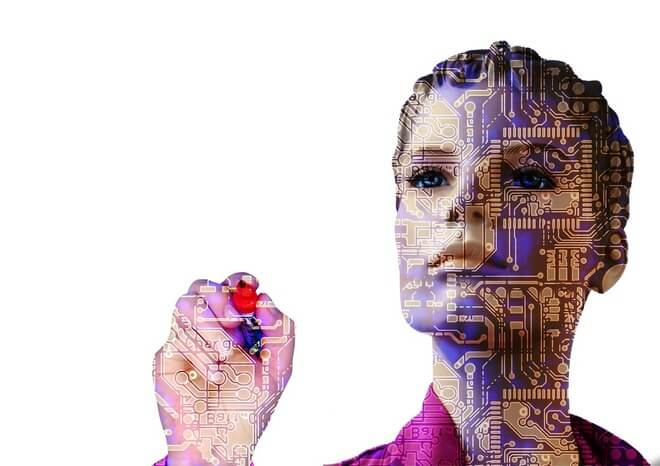Artificial Intelligence (AI) and human intelligence are two distinct concepts with fundamental differences.
While AI has made great strides in recent years, it is still a long way from replicating human intelligence.
In this article, we will discuss how AI differs from human intelligence in several key areas.
Table of Contents
Learning and Adaptation
One of the most significant differences between AI and human intelligence is in how they learn and adapt.
AI systems learn through algorithms and statistical models that analyze large amounts of data.
Machine learning algorithms, for instance, allow machines to learn from data sets and make predictions based on that data.
Human beings, on the other hand, learn through experience and observation.
Human intelligence involves the ability to process and understand complex information, solve problems, and adapt to new situations based on previous experiences.
While AI systems can be trained to recognize patterns and make predictions based on that data, they lack the ability to understand the context of the data or the situation in which it is applied.
This is because they lack the ability to reason, which is a key component of human intelligence.
Creativity and Imagination
Creativity and imagination are two other areas where AI differs from human intelligence. While AI systems can generate new content and ideas, they are limited by their programming and algorithms.
They cannot create entirely new ideas or concepts without being explicitly programmed to do so.
Human intelligence, on the other hand, is characterized by its ability to think creatively and generate new ideas.
Human beings can combine different concepts, ideas, and experiences to create something entirely new and original.
Emotional Intelligence
Emotional intelligence is another area where AI differs from human intelligence.
Emotional intelligence refers to the ability to understand and manage one’s emotions and the emotions of others.
While AI systems can recognize and respond to emotions, they lack the ability to feel emotions.
Human beings are inherently emotional creatures, and our emotions play a significant role in how we interact with the world around us.
Our ability to empathize, connect with others, and understand their emotions is a crucial aspect of human intelligence.
Contextual Understanding
Contextual understanding is another area where AI differs from human intelligence.
While AI systems can recognize patterns and make predictions based on data, they lack the ability to understand the context in which that data is applied.
Human beings have a deep understanding of the world around them and the context in which they operate.
We can understand the nuances of language, cultural differences, and social dynamics, which is essential in navigating complex situations.
Intuition and Common Sense
Intuition and common sense are two other areas where AI differs from human intelligence.
While AI systems can make predictions based on data, they lack the ability to make intuitive leaps or apply common sense in unfamiliar situations.
Human beings have a natural ability to make intuitive leaps and apply common sense in novel situations.
Our ability to reason, understand the context, and draw on previous experiences allows us to make decisions quickly and accurately.
Ethics and Morality
Finally, AI and human intelligence differ in their approach to ethics and morality. While AI systems can be programmed with ethical principles, they lack the ability to understand the moral implications of their actions.
Human beings have a deep understanding of ethics and morality, which is informed by our experiences, culture, and social norms. We can make ethical decisions based on our understanding of the consequences of our actions.
Conclusion
In conclusion, artificial intelligence and human intelligence are fundamentally different in several key areas.
While AI has made great strides in recent years, it still lacks the ability to replicate human intelligence fully.
Human intelligence is characterized by its ability to learn and adapt, think creatively, understand and manage emotions, understand the context in which it operates, apply common sense and intuition, and make ethical decisions based on our understanding of the consequences of our actions.
